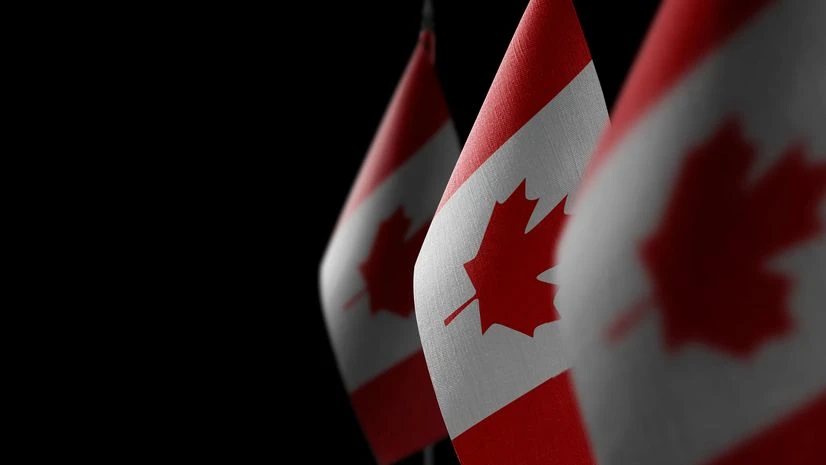Workers at Canadian National Railway will begin returning to work on Friday, the Teamsters union said, hours after the Canadian government moved to end an unprecedented rail stoppage.
The union said the work stoppage at Canadian Pacific Kansas City would continue pending an order from the Canadian Industrial Relations Board (CIRB). The union and company officials are scheduled to meet with the board on Friday morning.
Canada's top two railroads, Canadian National Railway and Canadian Pacific Kansas City had locked out more than 9,000
unionized workers earlier on Thursday, triggering a simultaneous rail stoppage that business groups said could inflict hundreds of millions of dollars in economic damage.
unionized workers earlier on Thursday, triggering a simultaneous rail stoppage that business groups said could inflict hundreds of millions of dollars in economic damage.
The Canadian government on Thursday announced that it would ask the country's industrial relations board to issue a back-to-work order that should come soon.
The CIRB, which is independent, will now consult the companies and unions before issuing an order.
CN had said it would end its lockout on Thursday at 6 p.m.
More From This Section
ET (2200 GMT). CPKC said it was preparing to restart operations in Canada and further details on timing would be provided once it received the CIRB's order.
"I assume that the trains will be running within days," Labour Minister Steven MacKinnon told reporters.
As well as requesting a back-to-work order, MacKinnon asked the board to start a process of binding arbitration between the Teamsters union and the companies, and extend the terms of the current labor agreements until new agreements have been signed.
The sides blamed each other for the stoppage after multiple rounds of talks failed to yield a deal.
In a new statement during the early hours on Friday, the Teamsters union posted on X that it had taken down picket lines at CN.
CN spokesperson Jonathan Abecassis told the Canadian Broadcasting Corp it could take the company a week or more to catch up on shipments.
MacKinnon's decision marked a change of mind by the Liberal government of Prime Minister Justin Trudeau, which had said it wanted to see the matter settled at the bargaining table.
"We gave negotiations every possible opportunity to succeed ... but we have an impasse here," MacKinnon said.
"And that is why we have come to this decision today."
Reliant on rail
Business groups and companies had demanded the government act.
Trudeau, in a post on X, said "collective bargaining is always the best way forward," but added governments must act when faced with serious consequences to supply chains and the workers who depend on them.
Canada is the world's second-largest country by area and relies heavily on railways to transport a wide range of commodities and industrial goods. Its economy is heavily integrated with that of the United States, meaning a stoppage would roil North American supply chains.
"We are pleased the government has responded to our calls to intervene ... A prolonged stoppage would have imposed enormous costs on Canadian business," the Canadian Manufacturers & Exporters, an industry group, said in a statement.
The rail companies previously said they were forced into the lockouts to avoid strikes at short notice. They said they had bargained in good faith and made multiple offers with better pay and working conditions.
Paul Boucher, head of the Teamsters rail union, had accused CN and CPKC of being "willing to compromise rail safety and tear families apart to earn an extra buck".
Unions typically do not want contracts decided through arbitration as it removes their leverage from withholding labor to secure better terms.
The left-leaning New Democratic Party, which has traditionally received strong union support and props up Trudeau's government, opposed the government's decision.
"Justin Trudeau has just sent a message to CN, CPKC and all big corporations - being a bad boss pays off," party leader Jagmeet Singh said in a statement.
The stoppage has crippled shipments of grain, potash and coal while also slowing the transport of petroleum products, chemicals and autos.
Tens of thousands of people who depend on certain commuter rail lines into Toronto, Vancouver and Montreal were also hit by the lockouts, since all train movement on these CPKC-owned lines had halted indefinitely.
The stoppage was largely rooted in scheduling, availability of labor and demands for better work-life balance, according to the union and companies. It comes after Ottawa introduced new duty and rest-period rules in 2023.
(Only the headline and picture of this report may have been reworked by the Business Standard staff; the rest of the content is auto-generated from a syndicated feed.)
(Only the headline and picture of this report may have been reworked by the Business Standard staff; the rest of the content is auto-generated from a syndicated feed.)

)